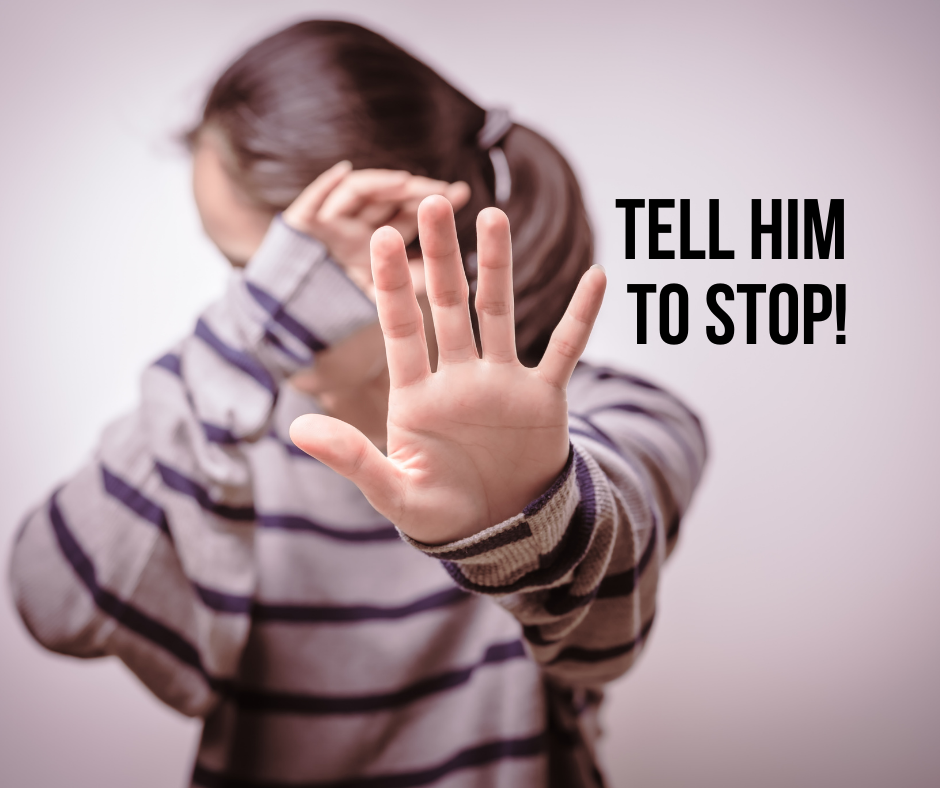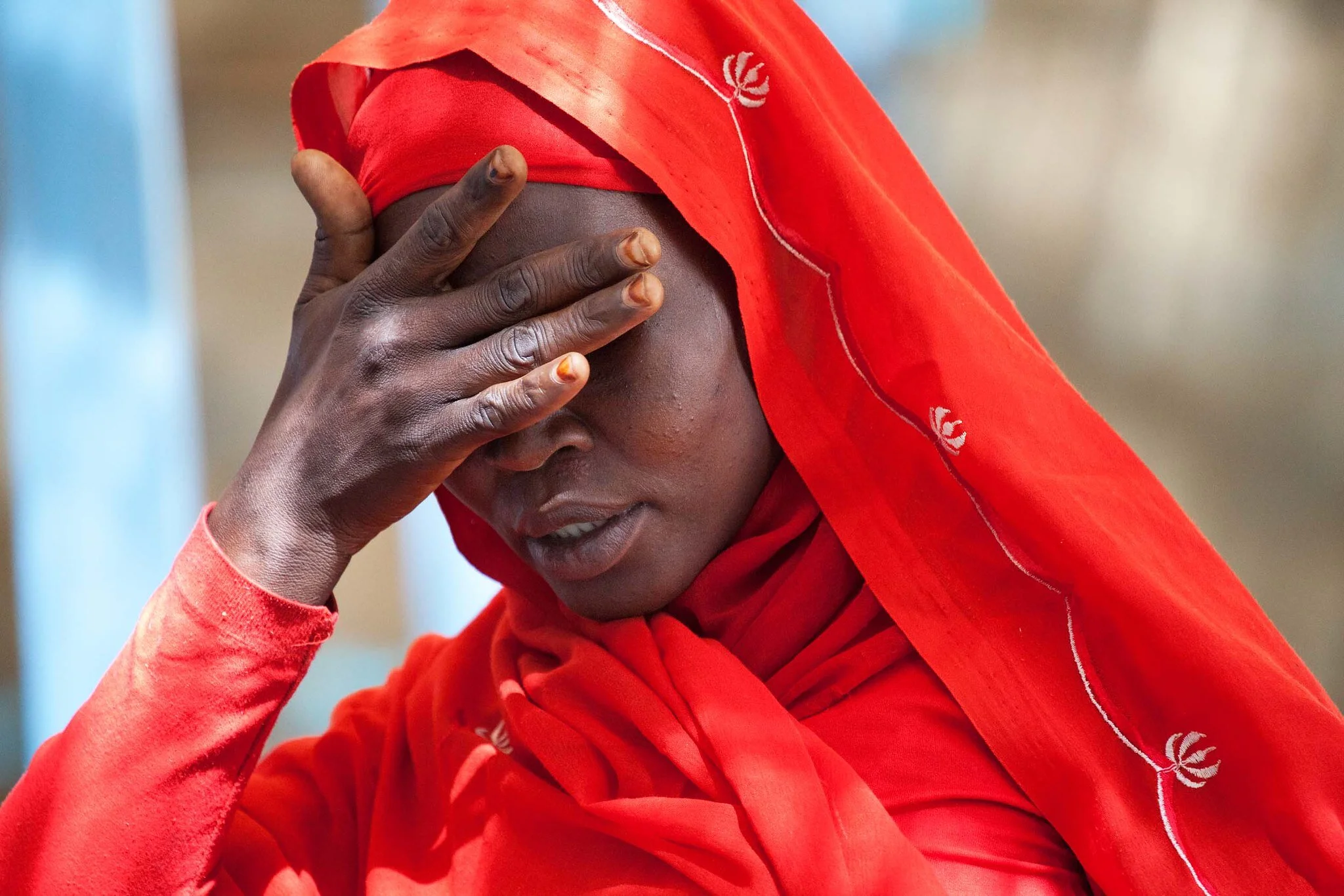Tell him to stop!
Knowing about violence is different than touching it
An Excerpt from BRING RAIN
By Sarah Dawn Petrin
Mrs. Chan – the Philippines
When a refugee family becomes separated by war, it can take years to bring them back together. I have worked to reunite refugee families, and it’s a messy business. After years of separation, as husbands and wives live apart and children no longer live with their parents, it’s hard to put families back together again.
I dealt with family reunification cases for Vietnamese refugees when I worked in a legal aid office in Manila, the capital of the Philippines. Thousands of refugees were living there in urban slums, decades after the Vietnam War ended.
Our office saw all kinds of broken families, families that had been torn apart and families that were breaking under the pressure of living as foreigners, without the right to work.
Every day, I worked through a translator to recreate the life history of each refugee, spending up to three hours with each person, listening to how they were persecuted in Vietnam. The office helped many of these refugees to resettle in the United States.
When I needed a break from the intensity of the stories, I went up to the roof, where a small Filipino church gathered, and children played. After joining the children in whatever game they were playing that day, I would go back down to the office and start working with another client. Although we operated as a legal aid office, it often felt like a family crisis center.
One afternoon, Mrs. Chan came running into the office crying, asking for the office director. When she saw him, she sobbed. Her husband was drunk again. He was beating her severely.
“Tell him to stop,” she exclaimed, “Tell him to stop!”
The office director listened to Mrs. Chan intently, nodding his head continuously. Afterward, we went into a closed-door meeting to discuss the situation.
“What are you going to do?” I asked him. “You know all the men respect you. They will listen to whatever you say.”
“Yes,” he said, “but Mr. Chan is my elder. In our culture, I cannot confront him.”
“What good is it,” I asked, “to document their persecution while Mrs. Chan is afraid for her life? This is not a time for saving face. Go talk to him!” I exclaimed.
“But Sarah, you don’t understand,” he continued. “Domestic violence is prevalent among the refugee families…and in Vietnamese culture.”
“Then talk to all the men,” I said. “You don’t have to confront Mr. Chan directly. Tell all of them they should stop beating their wives.”
I had seen the men get drunk day after day, the listless look on their faces from being repeatedly turned down for work because they lacked identity documents. Being refugees in a country not their own, they lost hope for a better future. They needed to be resettled in another country in order to have the right to work and continue to educate their children.
“If you need to save face, then blame the talk on me,” I said. “Tell them I don’t want to see women beat up. Tell them that in America, domestic violence is a crime that will land them in jail. They better stop now.”
The director called a meeting with all the men. I went along, standing there with my hands on my hips and a stern look on my face. There was no translation from Vietnamese to English, so I didn’t understand what he was saying to the men who had gathered.
Sensing that the talk was coming to an end, I asked the director, “Did you tell them that domestic violence is against the law in the United States?”
He shook his head and gave me a stern look. I wanted to make sure the men understood my point. “Make sure you tell them that if they hit their wives in the United States, it is illegal.”
Then, he looked downward and closed with a few sad words. In Vietnamese culture, women do not tell men what to do – and young people must speak deferentially to older people – but I had to do my part. Speaking up for Mrs. Chan allowed us to speak up for all the women in her community.
I couldn’t let Mrs. Chan’s plea go unaddressed. I had seen the devastating impact of domestic violence before. I knew that it could get far worse for Mrs. Chan and other women like her if the men continued with the beatings. I had seen it for myself, in South Africa.
Women’s Ward, South Africa
Living in Johannesburg, I was confronted with gruesome stories of sexual violence every day. The media outlets competed for the most grotesque story of the day.
Each morning, the graphic headlines were posted on telephone poles at every street corner, so that drivers passing by would be shocked and buy more papers from hustlers. When I first saw the headlines, I too was shocked.
“Infant of two months gang raped by four men.”
“Child disfigured, torn apart by sex.”
As the headlines grew worse, I began to wonder – were the stories true?
I asked local doctors, are people really raping infants? It seemed unfathomable to me. Yes, they told me. There is no limit to how small the child is – infant rape cases come into the hospital every day. What could be behind this, I wondered?
There was a popular belief among men, that raping a child gave them immunity from being infected by the HIV virus that causes AIDS. Infected men were trying to “cure” themselves this way, stealing children from their homes and permanently disfiguring their reproductive organs.
“You should see what they do to the women. It is even worse,” the doctors said. The doctors invited me to join them for morning rounds at the hospital in Soweto, the biggest township in Johannesburg. I joined them one Saturday morning.
Soweto Hospital
The hospital floors of Soweto hospital were covered in blood. Realizing the risk of infection, I dressed in surgical scrubs before making rounds. Although I only intended to observe the rounds, I soon found myself alone in the women’s ward. I was twenty-three-years-old at the time.
I stood dumbfounded as I tried not to stare at the women, who were mutilated in the most intimate places. A resident physician from Cuba motioned me to the bedside of a woman whose breast was nearly cut off by a large knife wound. The resident asked for my help.
“Can you hold her breast for me?” he asked.
“Uh, I’m not qualified to work on patients,” I said.
“We need to sew her up or else she’s going to lose this breast. Do you see anyone else around here who’s available?” he implored.
There were women everywhere groaning in pain – but no other doctors or nurses. There was no one else to help. Not one woman was on an intravenous (IV) drip or pain medication.
As the resident prepared a large needle to sew the breast back on, I wanted to apologize to the woman for not giving her any pain medication, but she was barely lucid. I carefully held her breast, hoping we could save it from falling off completely. When the resident stitched her breast back on, the woman passed out.
“Better that she sleeps now,” he said, urging me on to the next patient. We continued down the row, but all I could think about was that one woman’s breast.
“Who did that to her?” I wondered out loud.
The resident replied, “Probably someone she knows,” and motioned me onward.
In fact, intimate partner violence (IPV) affects significant numbers of women throughout the African continent. Prevalence studies by the World Health Organization (WHO) indicate that nearly half of all African women and girls will experience violence from a partner in her lifetime.
Being in the hospital that day made me realize that we need to provide better health care for women affected by violence. It also made me realize this:
Sexual violence is like an epidemic. To find a cure, the disease needs to be cut off at its source, attacking the inequalities and belief systems that devalue women.
Sexual Violence - a war crime
Sexual violence is not restricted to inter-personal violence between two people. During times of war, sexual violence is used on a large scale to intimidate and control entire groups. When armed groups use rape as a weapon of war, this is called Conflict Related Sexual Violence (CRSV).
In the 1990s, rape was used as a form of ethnic cleansing in Bosnia-Herzegovina and the Rwanda genocide. Prior to this, the international community understood rape as an inevitable consequence of war. Then, between 1992 and 1994, as many as 20,000 Bosnian women were brutally enslaved, raped, and tortured by Serbian and Bosnian military forces in the former Yugoslavia. In 1996, the International Criminal Tribunal for the Former Yugoslavia (ICTY) prosecuted police and military officers for rape as a war crime and as a crime against humanity, including officers who ordered soldiers to rape under their command.
During the same period, the International Criminal Tribunal for Rwanda (ICTR) was established to prosecute those responsible for the genocide that killed 800,000 ethnic Tutsi were systematically killed in merely one-hundred days between April and July 1994. During the mass killings, Hutu military commanders gave orders for men to rape women with the express purpose of impregnating them and re-engineering the ethnicity of their children. It is estimated that “hundreds of thousands” of Rwandan women were raped, as evidenced by the many women who abandoned their offspring after giving birth. As a result of what happened in Rwanda, the International Criminal Court (ICC) also determined that rape could be prosecuted as an act of genocide.
Understanding Violence
Today, the United Nations documents Conflict Related Sexual Violence (CRSV) in war zones, holding armed groups accountable for reported violations. Each year, the UN Secretary General reports how many people are affected by sexual violence in active conflicts. Even though many cases of CRSV still go unreported, we can track the number of people affected from Myanmar to the Democratic Republic of the Congo.
Studying these patterns of violence helps us learn how to end the cycle of violence. However, more needs to be done to prevent sexual violence. Significant efforts are underway to fight against impunity, to hold armed groups accountable by establishing codes of conduct for military forces and enforcing a military code of justice. However, many countries are hampered by malfunctioning judicial systems and a weak rule of law, which allows perpetrators to go free.
Read more on how you can help - order Bring Rain!

